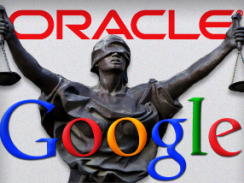A litigator's view: Three things I know about Oracle v. Google


Can you? Can the pundits? Can the jurors?
But here are three things I do know:
1. Google is not an innocent here
The news cycle today is all about how Google has vanquished Oracle, and any defeat for intellectual property protection is gleefully celebrated online particularly by the open source people who very much have a dog in the Oracle-Google fight. But for me, from the perspective of someone who's spent my fair share of time in the courtroom, the news cycle never stopped being about this moment in the trial:
In court on Tuesday, Oracle attorney David Boies showed Schmidt a 2005 presentation to Google's top managers that said Google "must" take a license from Sun. Schmidt said he could not recall being told that was the case. [Reuters]
Can you imagine being the young lawyer stuck in some windowless conference room reviewing e-documents 100 hours a week for months on end, subsisting on bologna sandwiches (yes, I've been there), and coming across that smoking gun? A presentation to Google top management basically admitting knowledge of infringement? And then it's revealed in court, reported by Reuters and ... completely forgotten in future news coverage.
Google got lucky here and Schmidt's feet weren't held to the fire, but I'm not willing to forget that moment.
2. Oracle’s lawyer is serious
David Boies is one of the handful of smartest lawyers in the world, "the Tiger Woods of the legal profession." Remember him? He was Napster's lawyer defending against the RIAA, he was Al Gore's lawyer in Bush v. Gore, he was Microsoft's nemesis in the big antitrust trial. Now he's Oracle's lawyer. This is not a guy who takes on frivolous cases.
For about eleven minutes in the 1990s I worked at the same firm (Cravath, Swaine & Moore) as Boies and, while we never interacted beyond the occasional shared elevator ride, everyone I knew who worked with him was in awe of his intellect.
If you listen to the audio recording of the oral argument in Bush v. Gore, you'll hear one of the greatest legal minds of our time in action. This is a guy who can back Justice Scalia into a corner. If David Boies thinks Oracle has a strong enough case to justify spending years of his life on, I'm inclined to take that position seriously.
3. Inventions are good
If we don't protect inventions and creativity, people won't invent and create. The protection of intellectual property has few friends on the internet, but without the profit motive we'd have to wait for Al Gore to invent the internet. Nor would we have computers, LCD displays or comfortable desk chairs to sit on while "sharing" files via Bittorrent.
The Sun-Java people made something valuable. Oracle now owns it. Google made lots of money from it. There are a lot of issues in the case, not least that a lot of Java is open source and that the copyright status of APIs is unclear, but fundamentally it seems reasonable for the owner of Java to expect to profit when others profit from Java.
After all, if all the Android technology was so easily derived from open source code, why did Google need to hire "a load of Sun engineers who worked on Java?"
About the author: Steven A. Shaw is a former litigator and is the Executive Director of the Society for Culinary Arts & Letters.